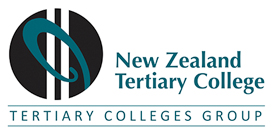About New Zealand Diploma In Early Childhood Education And Care (level 6) in New Zealand Tertiary College (NZTC)
New Zealand Diploma in Early Childhood Education and Care (Level 6)
This program equips students with an in-depth pedagogical knowledge of the major early childhood curriculum areas: language, literacy, the creative arts, mathematics, science and technology; family and community; and foundations for leadership in an early childhood context.
Other program requirements
- Blended learning students wishing to enrol in the Field Practice course are required to attend two x 16 hour Block Courses. These will be eight hours each day and will be held on a consecutive Sunday and Monday. Block Courses are an opportunity for face-to-face networking, teaching and learning. They are conducted by NZTC lecturers, and focus on topics relevant to the field of early childhood education
- Students enrolled in the Blended Learning mode are required to undertake work experience (paid or voluntary) in a licensed early childhood centre for a minimum of 16 hours per week throughout the program
- Engage in online discussions
International students will also be required to:
- Attend tutorials for a minimum of four hours per week throughout the program
Field Practice
Students wishing to complete the Field Practice course are required to attend eight weeks of full-time Field Practice in four-week blocks during the course of the program. The four weeks can be carried out in a Home Centre (the main centre at which a student may already be employed) and four weeks in a different centre.
Further study pathways
New Zealand Tertiary College qualifications have been designed to link easily into each other, providing you with a flexible range of pathway options into higher level study.
Upon completion of the New Zealand Diploma in Early Childhood Education and Care (Level 6) you may be eligible to apply for the Bachelor of Education (ECE) or Bachelor of Teaching (ECE). Graduation from the Bachelor of Teaching (ECE) results in eligibility to apply for New Zealand teacher registration. Entry criteria and field practice requirements apply.
Academic qualification equivalents
English language requirements (one of the below):
- IELTS : A minimum score of 7 in each component
- TOEFL : 85, Listening - 24; Reading - 24; Writing - 27; Speaking - 23.
- PTE : A minimum score of 65 in all four modules.
New Zealand Tertiary College (NZTC) Tuition Fees
| Courses |
Duration |
Tuition Fees |
| New Zealand Certificate In Health And Wellbeing |
22 weeks |
NZD 3,521 |
| Graduate Diploma In Teaching (Early Childhood Education) |
16 months |
NZD 14,750 |
| Bachelor Of Teaching |
3 Years |
NZD 22,000 |
New Zealand Living Expenses
In addition to your tuition and insurance fees, you will need between $20,000 and $25,000 per year ($380–480 per week) for accommodation/rent, food expenses, transportation costs, phone bills, internet usage and entertainment. No matter what your tuition or course fee is, the average living expense will be same for everyone. Please note that these amounts are just recommendations, Immigration New Zealand requirement is $15,000 per year plus return airfare or additional $2,000.
| General expenses |
Cost
(in NZ dollars) |
| Rent (per month) |
$800–$950 |
| Groceries (per week) |
$100–$150 |
| Gym membership (per year) |
$300 |
| Entertainment (per week) |
$50 |
| Milk (per litre) |
$3 |
| Coca Cola (per can) |
$2 |
| Cup of Coffee |
$3–$5 |
| Lunch from University food hall or campus café |
$7–$12 |
| Local calls made from a cell-phone |
$0.50–$1.50 |
| Taxi - 5 km ride |
$10–$12 |
| Movie ticket |
$10–$14 |
| Visit to doctor |
$45–$85 |

